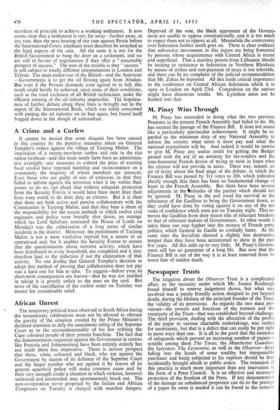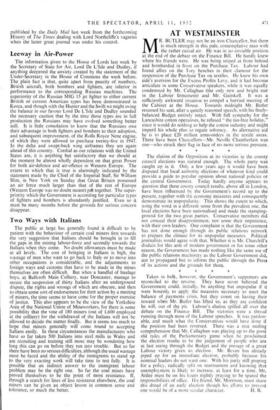Newspaper Trusts
The litigation about the Observer Trust is a complicated affair, as the necessity under which Mr. Justice Roxburgh found himself to reserve judgement shows, but what was involved was a purely friendly action designed to put beyond doubt, during the lifetime of the principal founder of the Trust, The validity of its provisions. As regards the two main pro- visions—the powers and functions of the trustees and the continuity of the Trust—that was established beyond challenge. The third provision, dealing with the allocation of the profits of the paper to various charitable undertakings, was voided for uncertainty, but that is a defect that can easily be put right in more ways than one. It is all to the good that the existence of safeguards which prevent an increasing number of papers— notable among them The Times, the Manchester Guardian, the Spectator, The Economist, as well as the Observer—from falling into the hands of some wealthy but irresponsible purchaser and being subjected to his caprices should be thus incidentally brought afresh to public notice. The extension of this practice is much more important than any innovation in the form of a. Press Council. It is an effective and necessary protection of the freedom of the Press. If any demonstration of the damage an unbalanced proprietor can do to the prestige of a paper he owns is needed it can be found in the extracts published by the Daily Mail last week from the forthcoming History of The Times dealing with Lord Northcliffe's vagaries when the latter great journal was under his control.



































 Previous page
Previous page